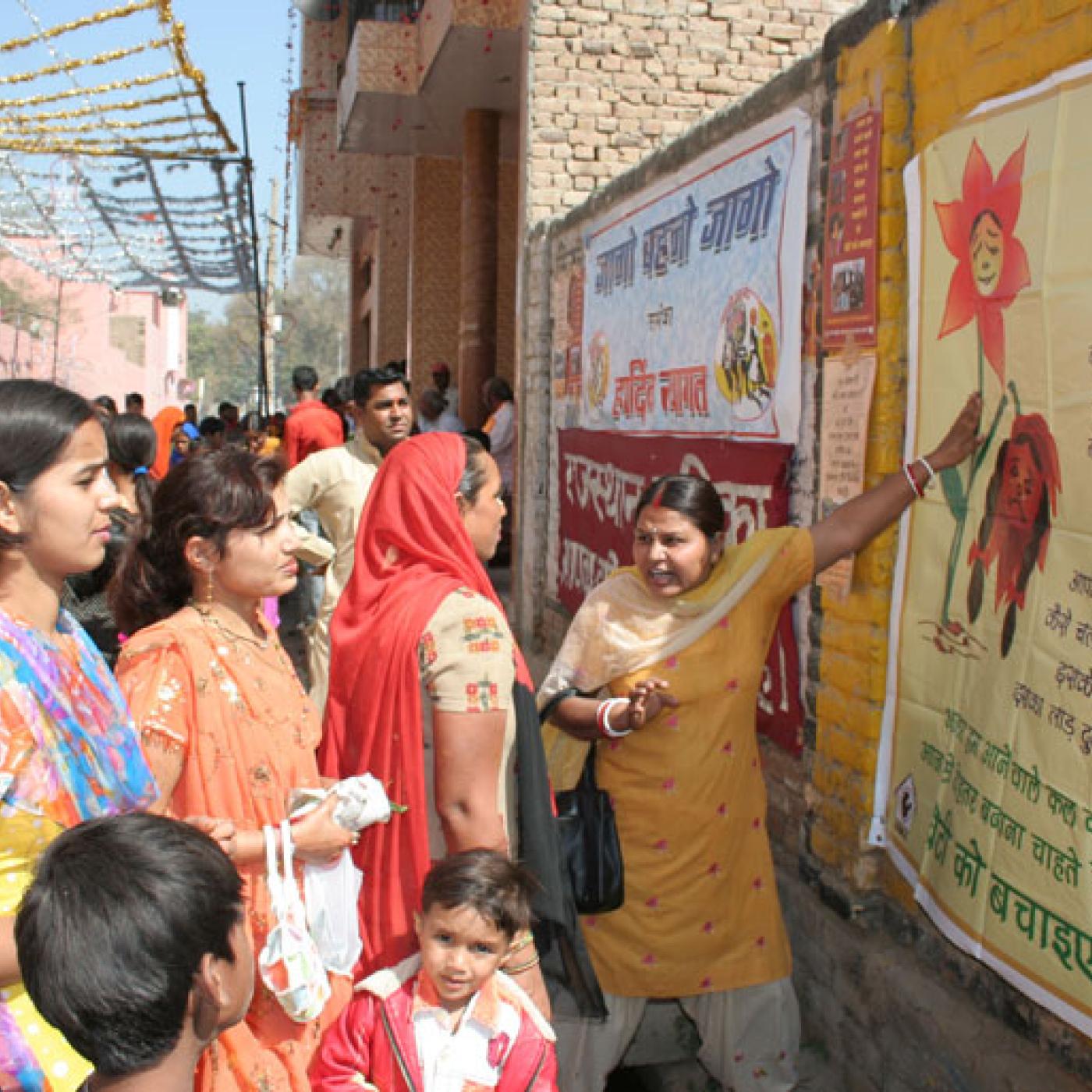Tools & Resources
Filter by
Type
Publication date
Language
Type
Publication date
Language
News & Updates
Feature
Dignity for Indian Girls
Female feticide, infanticide and neglect of girls has been widely practiced in India with alarming implications on the rate of missing girls. By 2005, India’s ratio of girls to boys had declined so steeply that there were fewer than 900 Indian girls born for every 1,000 boys – one of the lowest rates worldwide.
News & Updates
Feature
Women Against Violence in Elections in Bangladesh
The pervasive culture of political violence in Bangladesh has unique impacts on women, where intimidation, harassment, and sometimes physical violence can inhibit women’s electoral and political participation. To address this issue, women themselves have a critical role to play in promoting peaceful and gender-inclusive elections.
News & Updates
Feature
People Against Violence in Elections in Bangladesh
In this International Foundation for Electoral Systems (IFES) Q&A, IFES Bangladesh Chief of Party Alistair Legge talks about the People Against Violence in Elections (PAVE) program, including how the program started; the role of violence in Bangladesh’s political and electoral processes; the instrumental role of women in election conflict and security programming; and lessons learned to prevent or mitigate electoral violence in other contexts.
News & Updates
Feature
An Undocumented Wonder: The Making of the Great Indian Election
On September 23, 2014, the International Foundation for Electoral Systems (IFES) hosted a conversation between IFES President and CEO Bill Sweeney and the former Chief Election Commissioner of the Election Commission of India (ECI), S.Y. Quraishi. Sweeney and Quraishi discussed Quraishi’s book An Undocumented Wonder: The Making of the Great Indian Election, a first-person account of the recent electoral history of India and a must-read for those interested in understanding how the world's largest democracy works. Quraishi was also presented with the IFES’ prestigious Hutar Award, which honors those who express a commitment to improving democratic practices.
News & Updates
Feature
An Undocumented Wonder: The Making of the Great Indian Election
On September 23, 2014, the International Foundation for Electoral Systems (IFES) hosted a conversation between IFES President and CEO Bill Sweeney and the former Chief Election Commissioner of the Election Commission of India (ECI), S.Y. Quraishi. Sweeney and Quraishi discussed Quraishi’s book An Undocumented Wonder: The Making of the Great Indian Election, a first-person account of the recent electoral history of India and a must-read for those interested in understanding how the world's largest democracy works. Quraishi was also presented with the IFES’ prestigious Hutar Award, which honors those who express a commitment to improving democratic practices.
During the event, Sweeney marveled at the immense technical undertaking of elections in India, noting that as the Chief Electoral Commissioner of India, Quraishi oversaw elections that involved over 11 million Indian government personnel. Indeed, elections in India generate both wonder and interest globally. Polls have been held at regular intervals in the country since independence, and on an unprecedented scale, surmounting the massive challenges posed by the geography of the land and the diversity of the Indian populace.
During the event, Sweeney marveled at the immense technical undertaking of elections in India, noting that as the Chief Electoral Commissioner of India, Quraishi oversaw elections that involved over 11 million Indian government personnel. Indeed, elections in India generate both wonder and interest globally. Polls have been held at regular intervals in the country since independence, and on an unprecedented scale, surmounting the massive challenges posed by the geography of the land and the diversity of the Indian populace.
News & Updates
Feature
Selima Ahmad: Business Leader and Peace Advocate
Women in Bangladesh subject to violence and intimidation. IFES’ Women Against Violence in Elections (WAVE) program gathers students and academics, civil society and media and business and political leaders in one forum to advance peace in Bangladesh. Selima Ahmad is a prominent member of the Bangladeshi business community and a member of the WAVE advisory group.
News & Updates
Feature
Empowering Tomorrow through Youth Engagement
IFES works to empower youth around the world by hosting democracy-focused camps, events, and activities. By educating young people about democracy, we enable them to express themselves and have a voice in their communities.
News & Updates
Feature
Learning by Gaming: Democrapoli
Within its civic and voter education campaigns in anticipation of the Malian communal elections, the International Foundation for Electoral Systems (IFES), in collaboration with the Nigerien NGO Groupe de Recherche Action sur la Démocratie et les Systèmes Electoraux (GRADSEL), has developed an educational game called Democrapoli: Elections Communales Mali (Communal Elections Mali).
News & Updates
Interview/Speech/Testimony
IFES Q&A with Former Chief Election Commissioner of India Dr. SY Quraishi
As a former Chief Election Commissioner of India, Dr. SY Quraishi has a deep understanding of the intricacies of how the world’s largest democracy works. He also has more than 35 years of experience in civil service. Dr. Quraishi is well known in India and abroad as a development thinker, for his inclusive style of leadership, and for bringing together wide varieties of groups and institutions to achieve the common objectives of development. In this Q&A, Dr. Quraishi discusses challenges the Election Commission of India (ECI) faces in preparing to conduct credible elections and shares lessons learned. India’s five-week general elections started on April 7.
News & Updates
Feature
A Rights-Based Approach to Electoral Security
In India, Maoist rebels killed 14 people in attacks in Chhattisgarh state as part of a campaign of violence aimed at disrupting the ongoing five-week national election in the world’s most populous democracy. Similarly, in the days leading up to the April 5 presidential election in Afghanistan, the Taliban unleashed a campaign of violence to discredit the electoral process and keep voters from the polls. Many hope this election will be known for delivering the first peaceful transfer of power in the country’s history.





